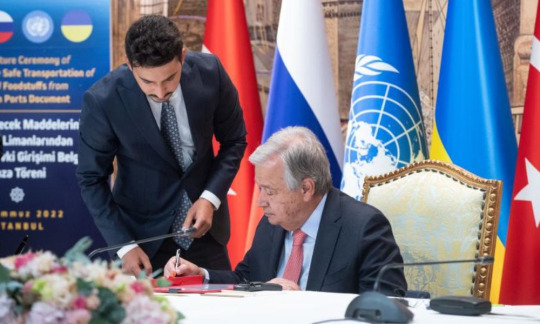#PreventingConflict
Explore tagged Tumblr posts
Text
How Does The UN Address Threats To International Peace And Security?

In a world characterized by geopolitical complexities and evolving global challenges, maintaining international peace and security remains one of the foremost priorities of the international community.
At the center of these efforts stands the United Nations (UN), an organization founded with the primary mission of preventing conflicts and safeguarding the well-being of nations across the globe. This blog explores the multifaceted role of the UN in addressing threats to international peace and security and sheds light on its various mechanisms and strategies.
The United Nations Security Council (UNSC)
The linchpin of the UN's efforts to maintain global security is the United Nations Security Council (UNSC). Comprising 15 member states, including five permanent members with veto power (the P5), the UNSC is tasked with the responsibility of identifying and responding to threats to international peace. It is within the chambers of the UNSC that the world's most critical security issues are deliberated and decisions are made regarding sanctions, peacekeeping missions, and other measures aimed at defusing conflicts.
The UNSC's primary functions include:
Conflict Prevention: The UNSC monitors global events closely and seeks to identify potential flashpoints or situations that could escalate into conflicts. Early warning and conflict prevention are central to its mission.
Peacekeeping: The UN deploys peacekeeping missions to areas of conflict to help maintain ceasefires, protect civilians, and facilitate the political and peace processes.
Sanctions: When diplomatic efforts fail to address security threats, the UNSC can impose economic or diplomatic sanctions on states or entities to pressure them into compliance with international law and norms.
Authorization of Force: In extreme cases, the UNSC can authorize the use of force, such as in the case of the Gulf War in 1990-1991 or the intervention in Libya in 2011.
Diplomacy And Conflict Resolution
One of the core principles of the UN's approach to international security is diplomacy. The UN provides a neutral platform for nations to engage in diplomatic dialogue, negotiation, and conflict resolution. It facilitates peace talks, mediations, and negotiations in various conflict zones worldwide.
For instance, the UN has played a pivotal role in brokering peace agreements in conflicts like the Bosnia and Herzegovina war, the Iran-Iraq war, and the Comprehensive Peace Agreement in Sudan. These diplomatic efforts are essential in de-escalating tensions and fostering dialogue between conflicting parties.
Humanitarian Assistance And Protection
The UN also addresses threats to international peace and security through its humanitarian efforts. When conflicts erupt, civilians often bear the brunt of the violence and displacement. The UN agencies, such as UNICEF, UNHCR, and WFP, provide essential humanitarian aid, including food, shelter, healthcare, and education, to those affected by conflicts and crises.
Moreover, the UN emphasizes the importance of protecting civilians in conflict zones, including children and vulnerable populations. It works to hold perpetrators of atrocities accountable through mechanisms like the International Criminal Court (ICC).
Multilateral Cooperation
The UN recognizes that addressing global security threats requires the collective efforts of the international community. It fosters cooperation among nations, regional organizations, and other stakeholders to pool resources, share intelligence, and coordinate actions in response to security challenges.
Challenges And Adaptations
While the UN plays a crucial role in addressing threats to international peace and security, it faces several challenges. These include geopolitical divisions within the UNSC, resource constraints, evolving security threats (such as cyber warfare and terrorism), and the erosion of international norms.
To adapt to these challenges, the UN continues to evolve. It explores reforms to enhance the efficiency and representativeness of the UNSC. It also embraces new technologies and partnerships with regional organizations to better address contemporary security threats.
Conclusion
In a world marked by uncertainty and instability, the United Nations remains a pivotal force in addressing threats to international peace and security. Through diplomacy, conflict prevention, peacekeeping, humanitarian aid, and multilateral cooperation, the UN endeavors to build a safer and more secure world for all nations. While it faces formidable challenges, its commitment to these objectives underscores its enduring importance on the global stage.
#UNPeacekeeping#GlobalSecurity#ConflictResolution#DiplomacyForPeace#PeacefulCoexistence#SecurityCouncil#InternationalPeace#PeacefulResolution#UNPeaceEfforts#PreventingConflict
0 notes